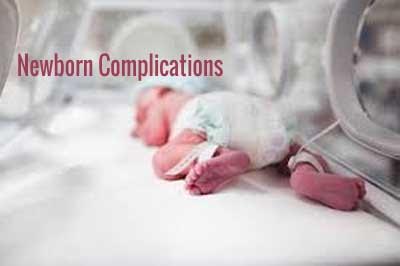- Home
- Editorial
- News
- Practice Guidelines
- Anesthesiology Guidelines
- Cancer Guidelines
- Cardiac Sciences Guidelines
- Critical Care Guidelines
- Dentistry Guidelines
- Dermatology Guidelines
- Diabetes and Endo Guidelines
- Diagnostics Guidelines
- ENT Guidelines
- Featured Practice Guidelines
- Gastroenterology Guidelines
- Geriatrics Guidelines
- Medicine Guidelines
- Nephrology Guidelines
- Neurosciences Guidelines
- Obs and Gynae Guidelines
- Ophthalmology Guidelines
- Orthopaedics Guidelines
- Paediatrics Guidelines
- Psychiatry Guidelines
- Pulmonology Guidelines
- Radiology Guidelines
- Surgery Guidelines
- Urology Guidelines
Treatment with vaginal progesterone lowers newborn complications

Dear mommies to be, a study finds that treatment with vaginal progesterone in women with a short cervix and a twin pregnancy may reduce the frequency of preterm birth and related serious outcomes.
The results indicated, women who received vaginal progesterone were 31 percent less likely to deliver before 33 weeks of pregnancy.
The findings come from an Ultrasound in Obstetrics and Gynecology meta-analysis of six studies encompassing 303 women pregnant with twins, all of whom had a cervical length of 25 mm or less in the mid-trimester.
About 159 women received vaginal progesterone and 144 received a placebo or no treatment.
Vaginal progesterone also reduced the rate of preterm delivery before 32 weeks and 34 weeks.
Infants born to patients who received vaginal progesterone had a 30 percent reduction in the rate of respiratory distress syndrome, the most common complication of prematurity, a 46 percent reduction in the rate of mechanical ventilation and a four percent reduction in the risk of dying in the neonatal period.
"To date, clinical practice and national recommendations to prevent preterm birth and reduce related adverse outcome in twin pregnancies vary significantly because of a lack of convincing scientific evidence and regional variation in the interpretation of said evidence," said Basky Thilaganathan, Ultrasound in Obstetrics and Gynecology's Editor-in-Chief.
"The findings of this individual patient data meta-analysis provide scientific evidence that treatment with vaginal progesterone in women with a short cervix and a twin pregnancy reduces the frequency of preterm birth and related serious adverse perinatal outcomes," Thilaganathan added.

Disclaimer: This site is primarily intended for healthcare professionals. Any content/information on this website does not replace the advice of medical and/or health professionals and should not be construed as medical/diagnostic advice/endorsement or prescription. Use of this site is subject to our terms of use, privacy policy, advertisement policy. © 2020 Minerva Medical Treatment Pvt Ltd